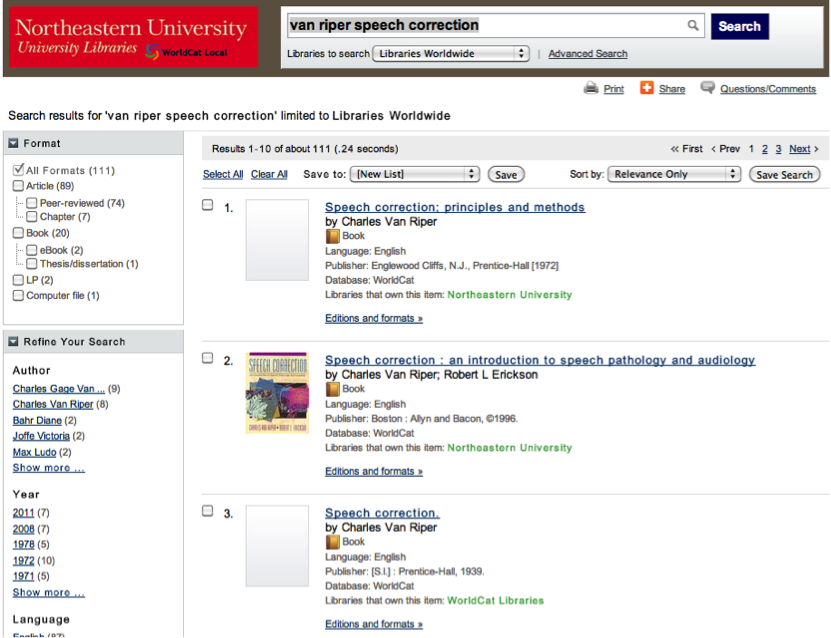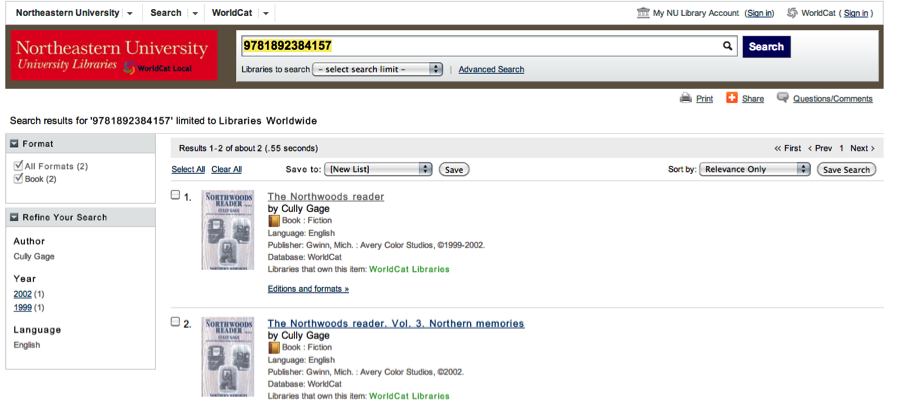On Thursday, November 14, 2013, eight years after the Authors Guild sued that Google Book Search violated the rights of authors, Judge Denny Chin finally handed down
his decision (PDF) on the lawsuit. The Internet giant’s project to scan millions of books held by academic libraries was found to “[advance] the progress of the arts and sciences, while maintaining respectful consideration for the rights of authors and other creative individuals, and without adversely impacting the rights of copyright holders.”
Advocates of fair use are applauding Judge Chin’s decision. Brandon Butler, formerly Director of Public Policy Initiatives at the Association of Research Libraries (and a co-facilitator in the development of the
ARL’s Code of Best Practices in Fair Use for Academic and Research Libraries),
calls the decision “a powerful affirmation of the value of research libraries.” The Library Copyright Alliance, which last year issued an
amicus brief in the case, quoted leaders of library organizations in a
press release issued yesterday:
“ALA applauds the decision to dismiss the long running Google Books case. This ruling furthers the purpose of copyright by recognizing that Google’s Book search is a transformative fair use that advances research and learning.” – Barbara Stripling, president of the American Library Association
____
“This decision, along with the decision by Judge Baer in Authors Guild v. HathiTrust, makes clear that fair use permits mass digitization of books for purposes that advance the arts and sciences, such as search, preservation, and access for the print-disabled.” – Carol Pitts Diedrichs, president of the Association of Research Libraries
____
“I echo the comments of my colleagues that this ruling, that strongly supports fair use principles, enables the discovery of a wealth of resources by researchers and scholars. Google Book search also makes searchable literally millions of books by students and others with visual disabilities. This is a tremendous opportunity for all our communities.” – Trevor A. Dawes, president of the Association of College & Research Libraries
Inevitably, the Authors Guild has already
announced its plan to appeal the decision. And some critics, while perhaps not siding with the Authors Guild, have questioned Google’s motives in embarking on the project –
readers’ privacy is uncertain, for example.
Google has also been criticized for providing low-quality or sometimes just incorrect metadata for the books it has scanned. But having access to such an enormous textual corpus, despite its flaws, is a boon for researchers working in the field of natural language processing — Brandon Butler lauds the decision as “a victory…for transformative, non-consumptive search” — as well as for the visually disabled.
 After I run the search, the ‘Search WorldCat’ option appears.
After I run the search, the ‘Search WorldCat’ option appears.
 Clicking ‘Search WorldCat’ sends all the terms already in the search box directly to WorldCat. The results look like this:
Clicking ‘Search WorldCat’ sends all the terms already in the search box directly to WorldCat. The results look like this:
 From this page, I see that Northeastern owns copies of the first two items, but not the third item. I can click on the titles to learn more about these items, and from there I can even place an interlibrary loan request for the book we don’t own.
We know that some of you prefer to locate materials by ISBN or ISSN. Good news — the new WorldCat feature can search these too.
Here I’ve searched Scholar OneSearch for ISBN 9781892384157, with 0 results. (This is not too surprising, as Northeastern doesn’t own a copy of this book).
From this page, I see that Northeastern owns copies of the first two items, but not the third item. I can click on the titles to learn more about these items, and from there I can even place an interlibrary loan request for the book we don’t own.
We know that some of you prefer to locate materials by ISBN or ISSN. Good news — the new WorldCat feature can search these too.
Here I’ve searched Scholar OneSearch for ISBN 9781892384157, with 0 results. (This is not too surprising, as Northeastern doesn’t own a copy of this book).
 But once I pass that search to WorldCat, I can find the book — and I have the option to request it via interlibrary loan!
But once I pass that search to WorldCat, I can find the book — and I have the option to request it via interlibrary loan!
 What do you think of the new release of Scholar OneSearch? What features would you like to see in future releases?
What do you think of the new release of Scholar OneSearch? What features would you like to see in future releases?